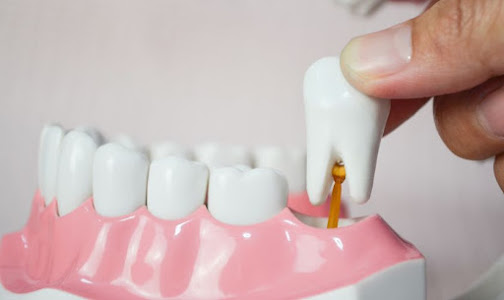How to Know if You Need Wisdom Teeth Removed?
Wisdom teeth, also known as third molars, typically make their appearance in our late teens or early twenties. While not everyone needs their wisdom teeth removed, there are several common signs and symptoms that may indicate it's time for these pesky molars to go. In this comprehensive guide, we will explore the reasons why wisdom teeth often require removal, the signs and symptoms to look out for, and the importance of consulting a dental professional for proper evaluation. If you're experiencing any dental concerns, be sure to reach out to an emergency dentist in Covington for expert advice and care.
The Role of Wisdom Teeth
Before delving into the signs that may necessitate wisdom teeth removal, it's essential to understand the purpose and anatomy of these third molars. Wisdom teeth are a vestige of our evolutionary past when our ancestors needed these extra molars for grinding tough and fibrous foods. Over time, our diets and lifestyles have evolved, making these extra molars unnecessary for most people. As a result, wisdom teeth often don't have enough room to emerge properly in our mouths, leading to a host of potential issues.
Signs and Symptoms That Indicate Wisdom Teeth Removal
While not everyone will experience problems with their wisdom teeth, there are common signs and symptoms that may indicate the need for removal. If you notice any of the following, it's crucial to consult with a dentist, especially an emergency dentist in Covington if you are in the area.
1. Pain and Discomfort
One of the most common signs that your wisdom teeth may need to be removed is pain and discomfort. You may feel a persistent, throbbing ache in the back of your mouth or experience sharp pain when chewing or opening your mouth. This discomfort can be a result of the wisdom teeth pushing against your other teeth or due to an infection in the gum tissue around the emerging tooth.
2. Swelling and Redness
Swelling and redness in the gum tissue near your wisdom teeth can be a clear indication of a problem. Inflammation often occurs when the wisdom teeth become impacted, meaning they can't fully emerge from the gums. Impaction can lead to infection and discomfort.
3. Difficulty Opening Your Mouth
If you find it increasingly challenging to open your mouth fully, your wisdom teeth might be to blame. Impacted or misaligned wisdom teeth can interfere with your jaw's normal range of motion, leading to stiffness and restricted mouth opening.
4. Jaw Pain
Jaw pain can be another consequence of problematic wisdom teeth. When these molars push against the adjacent teeth, they can affect the alignment of your bite, leading to jaw pain and discomfort.
5. Bad Breath and Unpleasant Taste
Infections and inflammation around the wisdom teeth can result in bad breath and an unpleasant taste in your mouth. The difficulty in cleaning and maintaining proper oral hygiene around these teeth can lead to the accumulation of bacteria and debris.
6. Sinus Problems
Believe it or not, wisdom teeth issues can even affect your sinuses. Upper wisdom teeth can sometimes push against the sinuses, causing sinus pressure, pain, and even sinus infections.
Complications That Can Arise
Ignoring the signs and symptoms of problematic wisdom teeth can lead to various complications. These complications can significantly impact your oral health and overall well-being, making it crucial to address any issues promptly.
1. Infections
Impacted wisdom teeth can create pockets in the gums where bacteria can thrive. This can result in painful and potentially severe infections, known as pericoronitis, which require immediate attention from a dentist. Do not hesitate to seek the help of an emergency dentist in Covington for timely treatment.
2. Cysts and Tumors
In rare cases, cysts or tumors can form around impacted wisdom teeth. These growths can cause damage to the jawbone and nearby teeth and may necessitate more complex surgical procedures.
3. Dental Crowding
Wisdom teeth can cause dental crowding as they attempt to emerge and push the neighboring teeth out of alignment. This can lead to crooked teeth and bite issues, which may require orthodontic treatment to correct.
4. Damage to Adjacent Teeth
Impacted or misaligned wisdom teeth can exert pressure on adjacent molars, causing them to decay or become damaged. This can result in additional dental issues that require treatment.
The Importance of Professional Evaluation
Given the potential complications and discomfort associated with wisdom teeth issues, it's vital to seek professional evaluation. A dental professional, such as an emergency dentist in Covington, can provide a thorough assessment and determine the best course of action for your specific situation.
During your dental examination, the dentist will typically perform X-rays to assess the position of your wisdom teeth, their alignment, and the presence of any potential issues. Based on their findings, they will recommend whether removal is necessary.
The Wisdom Teeth Removal Procedure
If your dentist or oral surgeon recommends wisdom teeth removal, it's essential to understand the procedure and what to expect. Wisdom teeth removal is a common dental surgery, and it is typically performed as an outpatient procedure.
The steps involved in wisdom teeth removal include:
1. Anesthesia
Before the procedure, you will receive anesthesia to ensure you are comfortable and pain-free during the surgery. Depending on the complexity of the extraction, your dentist or oral surgeon may use local anesthesia, sedation, or general anesthesia.
2. Extraction
Once the anesthesia has taken effect, the dentist or oral surgeon will carefully extract the wisdom teeth. They may need to make incisions in the gum tissue and, in some cases, may need to section the tooth into smaller pieces for easier removal.
3. Sutures
After the teeth are removed, the surgical site is typically closed with sutures. These stitches are either absorbable or non-absorbable, and your dentist will provide instructions on their care.
4. Recovery
The recovery process varies from person to person, but it's essential to follow your dentist's post-operative care instructions carefully. You may experience some swelling and discomfort in the days following the procedure, but these symptoms should gradually improve.
5. Follow-Up
It's crucial to attend any follow-up appointments scheduled by your dentist or oral surgeon. They will monitor your healing progress and ensure that there are no complications.
Post-Operative Care
Proper post-operative care is essential for a smooth and comfortable recovery after wisdom teeth removal. Here are some tips to help you during this period:
1. Pain Management
Your dentist will likely prescribe pain medication to manage any discomfort. Take these medications as directed and, if applicable, switch to over-the-counter pain relievers once it's safe to do so.
2. Swelling Reduction
Apply cold packs to your cheeks for the first 24 hours after surgery to reduce swelling. After that, switch to warm compresses to alleviate any remaining discomfort.
3. Diet
Stick to a soft diet for the first few days, including items like yogurt, applesauce, soup, and mashed potatoes. Avoid crunchy or hard foods that could irritate the surgical sites.
4. Oral Hygiene
Follow your dentist's instructions regarding oral hygiene. You may need to use a special mouthwash or avoid brushing around the surgical sites initially.
5. Activity
Rest and avoid strenuous physical activity for a few days after the procedure. This will help with the healing process and reduce the risk of complications.
6. Avoid Smoking and Alcohol
Refrain from smoking and consuming alcohol during your recovery, as these can slow down the healing process and increase the risk of complications.
Conclusion
Wisdom teeth removal is a common dental procedure that can greatly benefit your oral health and overall well-being if you are experiencing pain or other symptoms associated with these troublesome molars. If you suspect that your wisdom teeth may need attention, don't hesitate to consult with an emergency dentist in Covington for a professional evaluation and timely care. Ignoring the signs and symptoms of problematic wisdom teeth can lead to complications that are best avoided through proactive treatment.



.jpg)
Comments
Post a Comment